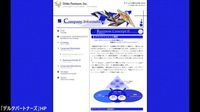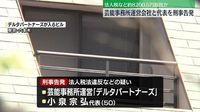In a significant legal development, the Tokyo National Tax Bureau has accused an entertainment agency and its representative of serious tax evasion. Delta Partners, located in Minato Ward, Tokyo, and its 50-year-old director, Munetoshi Koizumi, are under investigation for allegedly hiding approximately 240 million yen (about 2.4 million USD) in income and evading around 82 million yen (about 820,000 USD) in corporate and consumption taxes.
The allegations surfaced on April 16, 2025, revealing that Delta Partners, which saw a surge in sales thanks to the popularity of its talents, resorted to dubious financial practices. According to sources, Koizumi is suspected of fabricating invoices for advertising expenses, thereby concealing the agency's actual income. These fictitious invoices were reportedly linked to services from web production companies and were designed to misrepresent the financial dealings of the agency.
In the period from February 2020 to February 2022, it is alleged that Koizumi attempted to obscure income generated from popular talents, including the female artist known as Yukipoyo. However, it should be noted that Yukipoyo is not implicated in this case, as she had announced a contract with a different agency in 2021.
Sources close to the investigation indicate that the tax evasion was executed through a series of transactions where money was transferred to the accounts of the web production companies, only to be withdrawn in cash later. This method was presumably employed to avoid detection by tax authorities. The funds that were illegally obtained were allegedly funneled into the purchase of luxury real estate, including a tower mansion in Tokyo.
In response to the allegations, Delta Partners issued a statement through its legal representative, asserting, "We have already filed an amended return and paid the taxes. We sincerely apologize for causing a stir in the public." This statement reflects the agency's attempt to mitigate the fallout from the accusations, which have garnered significant media attention.
The accusations against Delta Partners highlight ongoing concerns regarding tax compliance within the entertainment industry in Japan. As the agency's sales grew, driven by the success of its talents, the pressure to maintain profitability may have led to unethical financial practices.
Tax evasion is a serious offense in Japan, and the repercussions can be severe, including hefty fines and potential imprisonment for those found guilty. The Tokyo National Tax Bureau is known for its rigorous enforcement of tax laws, and this case is no exception. The agency's investigation into Delta Partners underscores its commitment to ensuring that all businesses adhere to the law.
This situation also raises broader questions about the financial practices within the entertainment sector, particularly as agencies strive to compete in an increasingly crowded market. As more talents gain fame and popularity, the pressure on agencies to deliver results can lead to questionable decisions.
Moreover, the public's reaction to such scandals can significantly impact the reputations of the individuals and companies involved. As the story unfolds, it will be interesting to see how Delta Partners navigates this challenging situation and what steps they will take to restore their image.
In conclusion, the accusations against Delta Partners serve as a stark reminder of the importance of transparency and ethical conduct in business operations. As the Tokyo National Tax Bureau continues its investigation, the entertainment agency's future hangs in the balance. Will Delta Partners manage to clear its name, or will this scandal lead to more significant consequences for the agency and its director?










